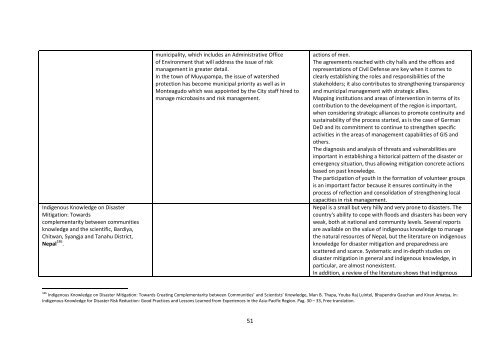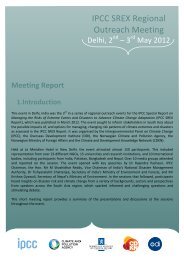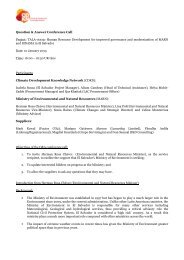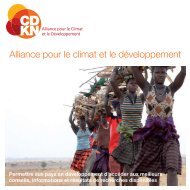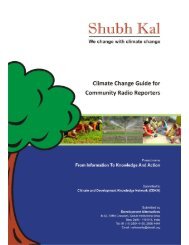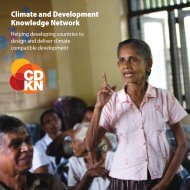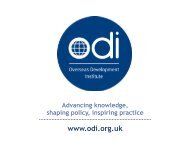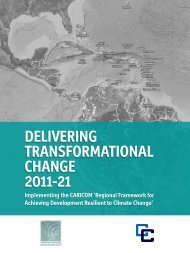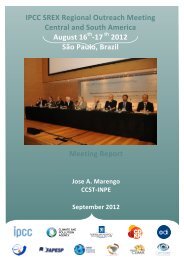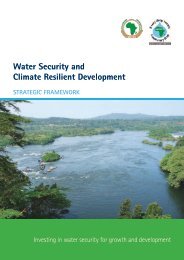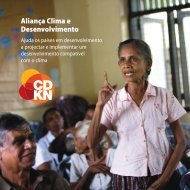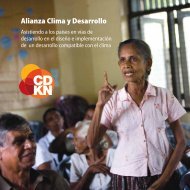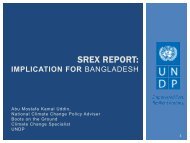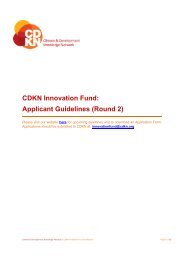Harmonized Perspectives - CDKN Global
Harmonized Perspectives - CDKN Global
Harmonized Perspectives - CDKN Global
- No tags were found...
Create successful ePaper yourself
Turn your PDF publications into a flip-book with our unique Google optimized e-Paper software.
Indigenous Knowledge on DisasterMitigation: Towardscomplementarity between communitiesknowledge and the scientific, Bardiya,Chitwan, Syangja and Tanahu District,Nepal 186 .municipality, which includes an Administrative Officeof Environment that will address the issue of riskmanagement in greater detail.In the town of Muyupampa, the issue of watershedprotection has become municipal priority as well as inMonteagudo which was appointed by the City staff hired tomanage microbasins and risk management.actions of men.The agreements reached with city halls and the offices andrepresentations of Civil Defense are key when it comes toclearly establishing the roles and responsibilities of thestakeholders; it also contributes to strengthening transparencyand municipal management with strategic allies.Mapping institutions and areas of intervention in terms of itscontribution to the development of the region is important,when considering strategic alliances to promote continuity andsustainability of the process started, as is the case of GermanDeD and its commitment to continue to strengthen specificactivities in the areas of management capabilities of GIS andothers.The diagnosis and analysis of threats and vulnerabilities areimportant in establishing a historical pattern of the disaster oremergency situation, thus allowing mitigation concrete actionsbased on past knowledge.The participation of youth in the formation of volunteer groupsis an important factor because it ensures continuity in theprocess of reflection and consolidation of strengthening localcapacities in risk management.Nepal is a small but very hilly and very prone to disasters. Thecountry's ability to cope with floods and disasters has been veryweak, both at national and community levels. Several reportsare available on the value of indigenous knowledge to managethe natural resources of Nepal, but the literature on indigenousknowledge for disaster mitigation and preparedness arescattered and scarce. Systematic and in-depth studies ondisaster mitigation in general and indigenous knowledge, inparticular, are almost nonexistent.In addition, a review of the literature shows that indigenous186 Indigenous Knowledge on Disaster Mitigation: Towards Creating Complementarity between Communities’ and Scientists’ Knowledge, Man B. Thapa, Youba Raj Luintel, Bhupendra Gauchan and Kiran Amatya, In:Indigenous Knowledge for Disaster Risk Reduction: Good Practices and Lessons Learned from Experiences in the Asia-Pacific Region. Pag. 30 – 33, Free translation.51


